Our Alumnus Speaks…
Department of Physics catches up with alumnus Mr Aw Chixiong [BSc (Hons), 2013], currently with the National Environment Agency.
What motivates you to pursue an education in Physics and also to earn a Master’s degree in Nuclear Science and Engineering?
To me, Physics is the foundation of many technology disciplines. Not only does it help us understand the laws of nature but it also shows us the beauty of the universe, from the subatomic level to the cosmological scale. Although the study of physics can be challenging and mathematically intense, the most rewarding part is getting our curiosity satisfied concerning the nature of our world, and why things around us work the way they do.
Physics also serves as the underlying core of nuclear science and technology, which brings about many benefits to society. Nuclear applications worldwide include agriculture, carbon dating, environmental protection, food safety, forensics, human health, industry, insect control, medicine, nuclear energy, security, space exploration, water management and more. Having knowledge in physics and nuclear science allows me to better understand and address issues associated with achieving the United Nation’s Sustainable Development Goals.
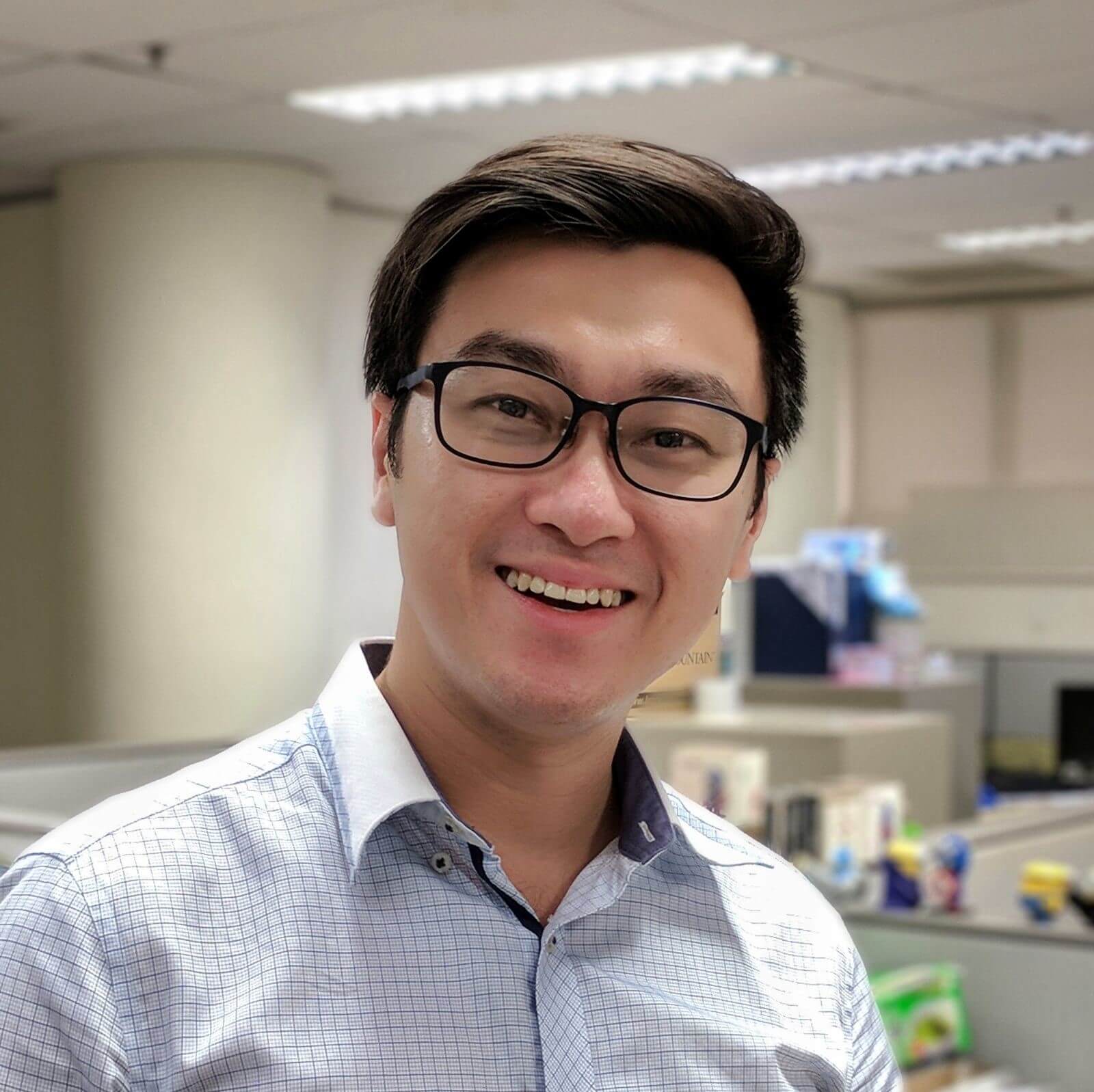
Share with us about your current employment and how do you think a physics education has prepared you for the job?
I am currently working in the Radiation Protection and Nuclear Science Division of the National Environment Agency. My job involves policy and planning pertaining to radiation protection and nuclear science. Our team ensures Singapore meets our obligations to various international conventions and agreements under the auspices of the International Atomic Energy Agency (IAEA). On the international front, we work closely with IAEA and support its efforts in promoting nuclear safety, security and safeguards. As the national focal point to the IAEA for technical cooperation, we also oversee and coordinate Singapore’s participation in IAEA’s regional technical cooperation projects.
Other than acquiring strong quantitative reasoning, analytical and problem-solving skills, the rigorous physics training has also provided me with a range of valuable skills which can be applied in both scientific and non-technical aspects. It has encouraged me to think out of the box, enabled me to grasp new concepts quickly while being attentive to details. In my opinion, technology is deeply intertwined with policymaking. It is important to explore creative approaches to address any complex policy issues. Having a physics education and technical background is advantageous and it complements the efforts in formulating innovative solutions and developing effective policies.
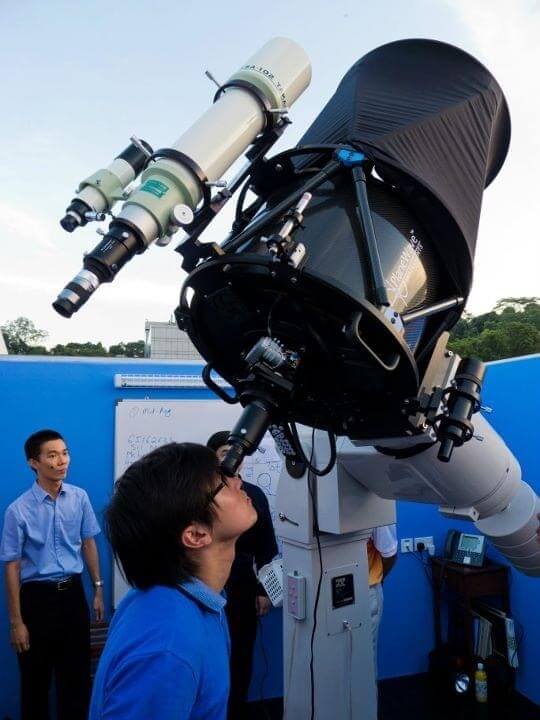
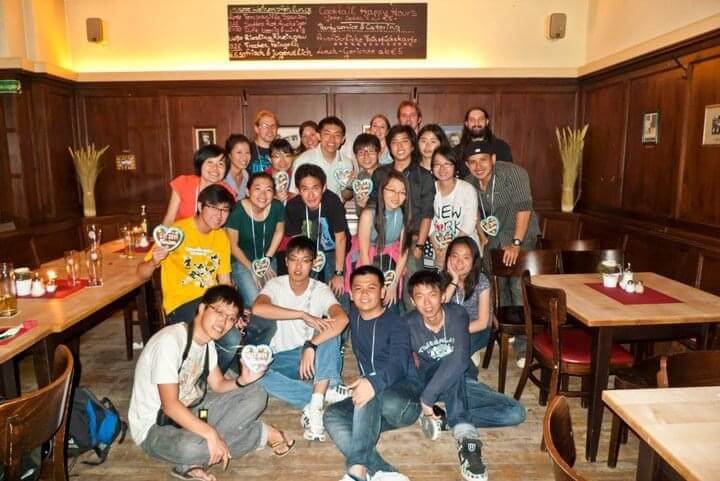
What do you miss about university life?
I miss the vibrant student life. I fondly remember taking part in the freshman orientation camps where I immersed myself in the fun activities and games, and students of different levels got to mingle. Friendships, teamwork and leadership were forged. Be it playing the role of a freshman, senior, organising committee member or orientation house leader, I will always remember this period of my life.
I also miss being part of the Physics Germany Immersion Programme where we visited places of great scientific and cultural tradition in Germany. It was my first time travelling to Europe and being exposed to the cultural diversity and academic environment of Germany. Attending lectures at the Ludwig Maximilian University of Munich and the University of Göttingen and having networking sessions with the industrial leaders were extremely fun and mind-opening.
Another fond memory I have was the opportunity to be a pioneer member to establish the instrumentation of the first roll-off roof astronomical observatory housing the 17” Astrograph telescope in the department. I had a glimpse into what it would be like to be an astronomer. Besides the routine observation and imaging of the astronomical objects and bodies, we also participated in star-gazing activities, assisted as teaching assistants and contributed to Singapore’s live webcast of the Venus Transit event in the year 2012. It was an eye-opening and rewarding period for me.
You have been venturing into volunteering opportunities. Share with us your motivation to give back to society.
I am grateful for the supportive people and the opportunities presented to me in my life so far. Looking back, I have benefited from the support of bursaries and scholarships, rendered by alumni, college, and organisations during my schooling years. It was because of these aids that I was able to focus on my studies and get to where I am in life today. This is my motivation to give back to society. I strongly encourage all of us to give back to society in our own way, be it big or small.
What do you think are some important skills to acquire to succeed in today’s workplace and is there any advice you would like to share with our undergraduates?
First, having good social skills is important because it is something we do every day, verbally and non-verbally. Having effective interpersonal communication helps foster and build teamwork, which will be beneficial for the workplace, business, family, and an individual’s networking.
Secondly, having proficient digital skills is also essential for today’s workplace. More and more jobs require the use of digital devices, network, communication applications and data to access, manage and exchange information. Acquiring good digital skills will help to improve one’s career prospects.
As the quote by Randy Pausch goes, “We cannot change the cards we are dealt, just how we play the hand.” Everyone has a different starting point and different cards dealt at hand. What works for someone else might not work for you. That is okay. Focus and prioritise your goals in life, and adjust as you go along the way. Find the balance, work hard and play hard. Stay confident, stay humble, stay curious. Enjoy the learning process. It is normal to make mistakes and fail; learn and prepare for the next opportunity. Keep trying and move forward. Chase your rainbow.
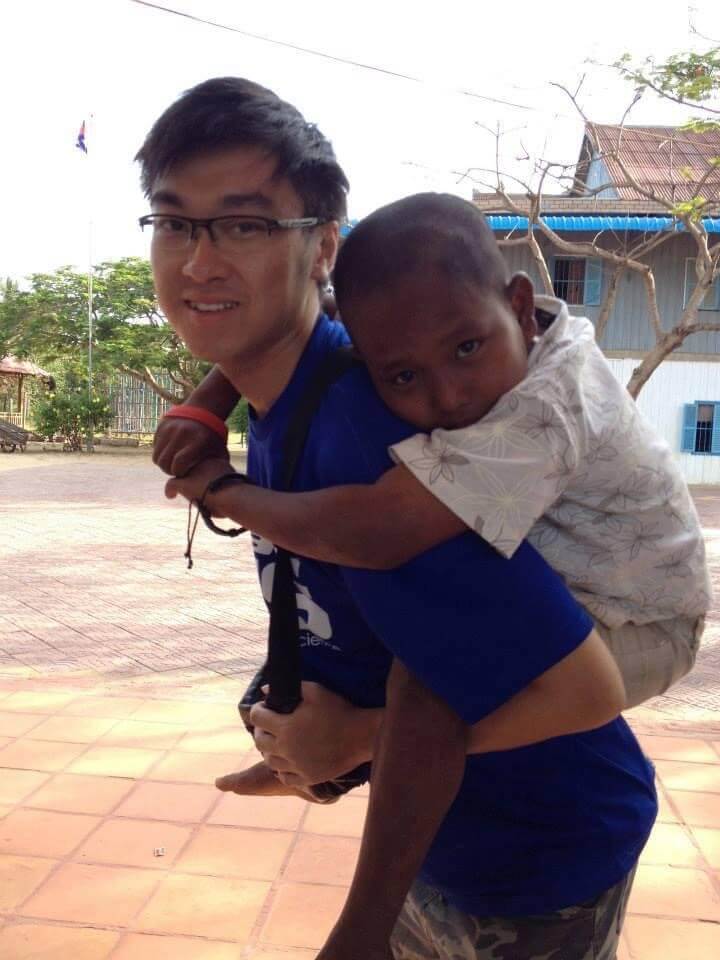
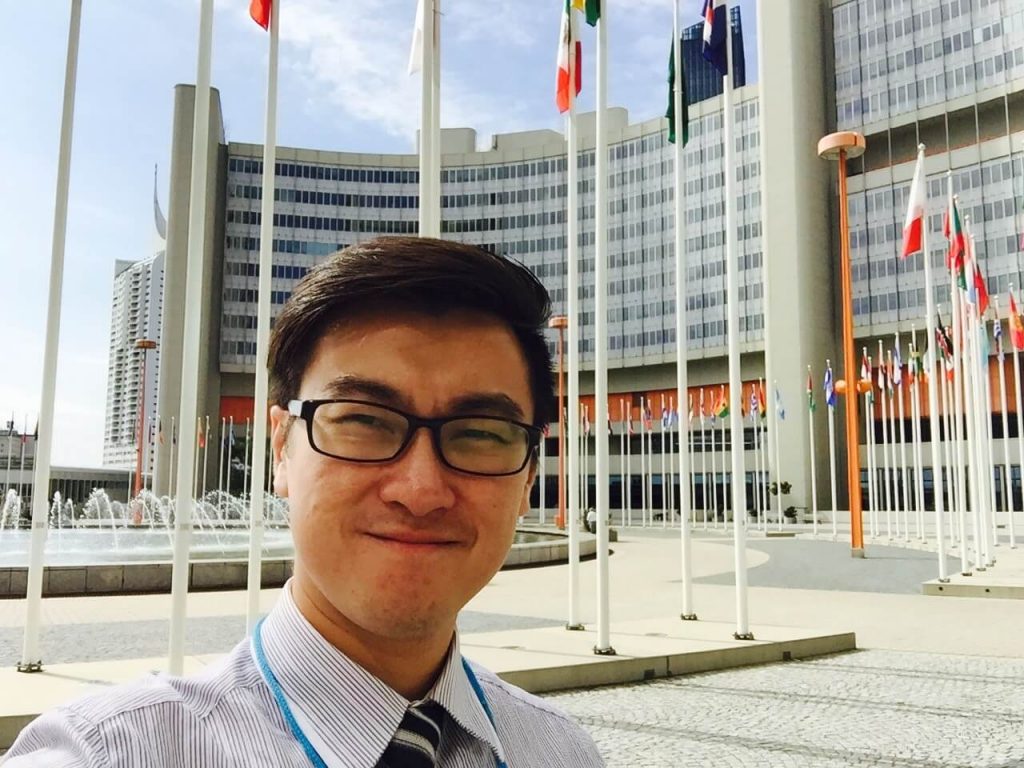
Having knowledge in physics and nuclear science allows me to better understand and address issues associated with achieving the United Nation’s Sustainable Development Goals.
Aw Chixiong
